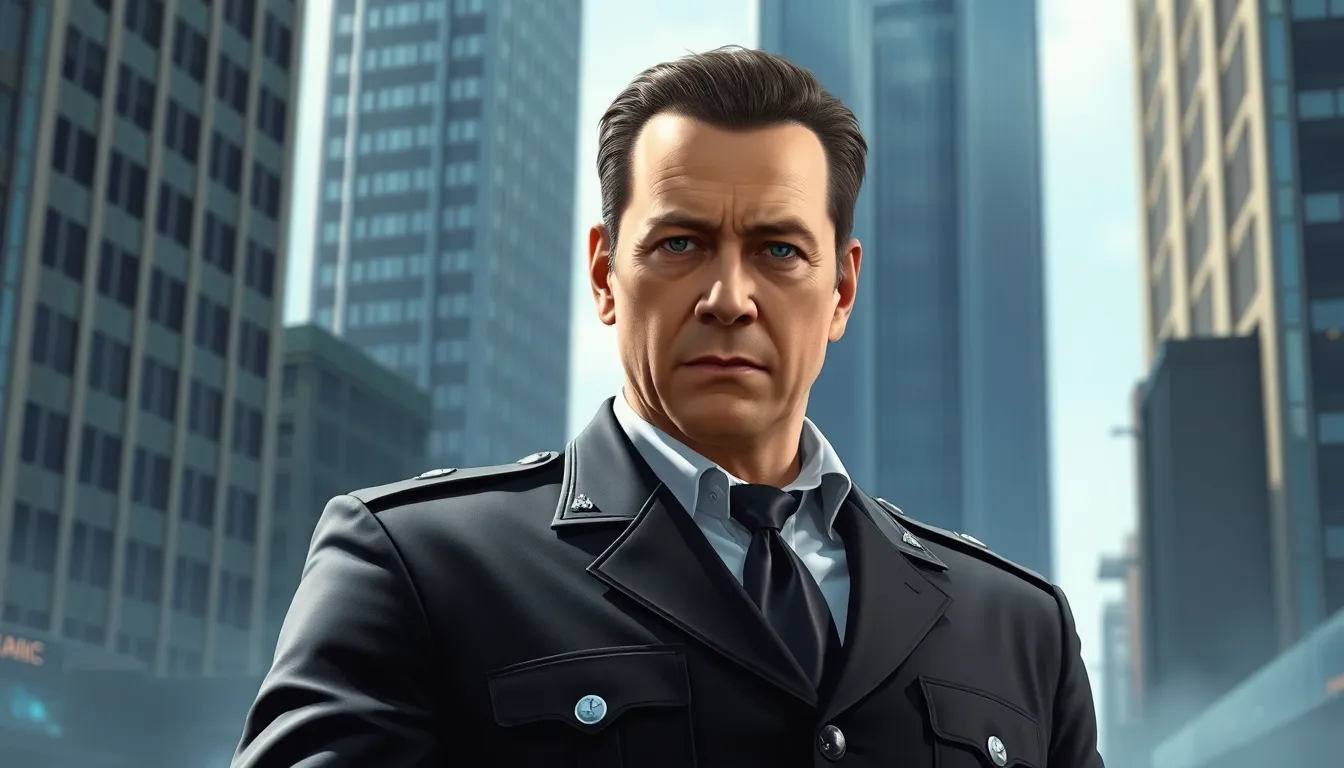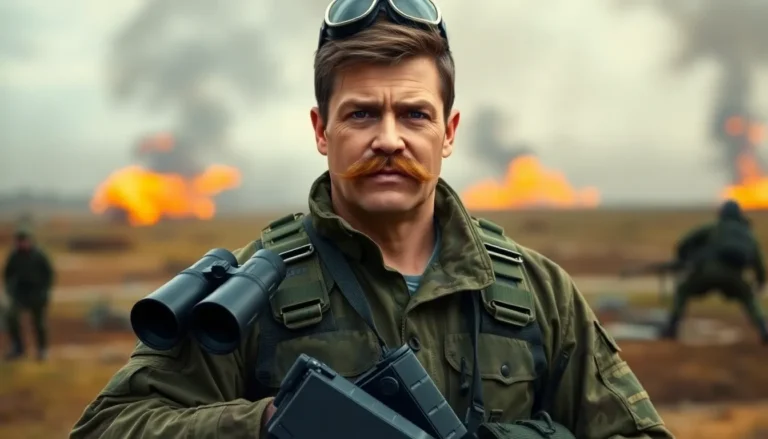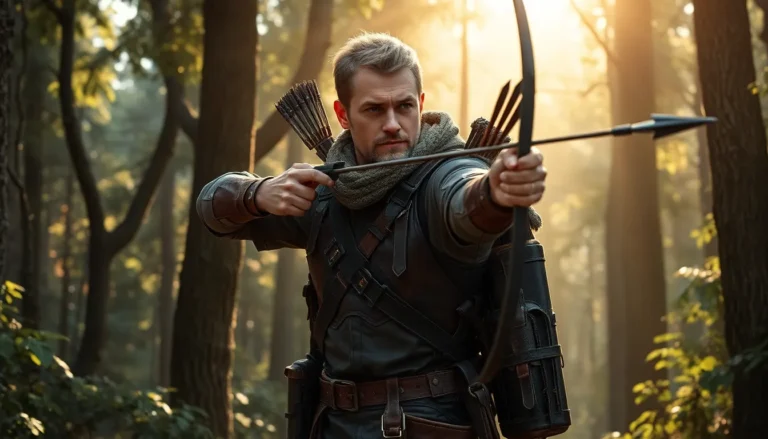Table of Contents
ToggleWhen it comes to unexpected pairings in the gaming world, few are as intriguing as Kevin Spacey and Call of Duty. This unlikely duo took the gaming community by storm, blending Hollywood flair with high-octane action. Imagine a world where Academy Award-winning performances meet the adrenaline-pumping chaos of modern warfare. It’s a match made in gaming heaven—or perhaps a curious twist of fate.
In 2014, Spacey stepped into the virtual battlefield as the charismatic antagonist in “Call of Duty: Advanced Warfare.” His portrayal brought a new level of depth and drama to the franchise, leaving players both captivated and slightly bewildered. With his signature charm and sinister motives, Spacey proved that even in a digital realm, a touch of star power can elevate the experience. So, what’s the story behind this unexpected collaboration? Buckle up as we dive into the fascinating intersection of Hollywood and gaming.
Kevin Spacey in Call of Duty
Kevin Spacey played a pivotal role as the antagonist in “Call of Duty: Advanced Warfare,” released in 2014. His character, Jonathan Irons, serves as the head of Atlas Corporation, a private military company. Spacey’s performance infused a Hollywood flair into the gaming narrative, captivating players with a mix of charm and menace.
In the game’s campaign, players navigate a futuristic world where Irons manipulates global events for power. Spacey’s portrayal engages players, providing a compelling villain that drives the story forward. His involvement marked a significant point in the franchise’s history, bridging cinematic storytelling and interactive gameplay.
The game’s developers leveraged Spacey’s star power to attract a broader audience. Combining his acting prowess with advanced graphics elevated the quality of in-game cinematics. The integration of high-profile actors in video games has become increasingly common, further blurring the lines between films and gaming.
Spacey contributed not only voice acting but also motion capture, allowing for a more realistic representation of his character. This technology enhanced the emotional depth of gameplay, making encounters feel intense and immersive. The collaboration demonstrates how video games can utilize established actors to enhance narrative complexity.
Overall, Kevin Spacey’s role in “Call of Duty: Advanced Warfare” reflects the evolving dynamics between the film industry and video games. His character embodies the complex issues surrounding power and morality, resonating deeply with players. The game’s impact isn’t just in its gameplay, but also in the memorable performances that shape player experiences.
Overview of Kevin Spacey’s Role


Kevin Spacey plays a pivotal role in the Call of Duty franchise, particularly as the antagonist in “Call of Duty: Advanced Warfare,” which released in 2014. His character, Jonathan Irons, serves as the head of the Atlas Corporation, a controversial private military company that influences global events for personal gain.
Character Background
Jonathan Irons stands out as a complex villain, embodying ambition and ruthlessness. He envisions a world where power shifts into the hands of private militaries, driven by profit rather than ideology. Spacey’s portrayal adds depth to Irons, showcasing his charismatic yet manipulative nature. Players encounter a stark contrast between Irons’ public persona and his true intentions, amplifying the tension throughout the game’s narrative. By presenting a character who blurs ethical lines, Irons resonates with themes of corporate greed and moral ambiguity, making him a memorable antagonist.
Contributions to the Game
Spacey’s involvement significantly enhances “Call of Duty: Advanced Warfare.” His exceptional talent encompasses both voice acting and motion capture, bringing Irons to life with striking realism. The developers utilized advanced graphics alongside Spacey’s performance, creating immersive cutscenes that heighten player engagement. Notably, his contributions help bridge cinematic storytelling and interactive gameplay, exemplifying the growing trend of high-profile actors in video games. Adding Spacey’s star power attracted a wider audience, elevating the overall experience and contributing to the game’s lasting impact on the franchise.
Impact on the Franchise
Kevin Spacey’s involvement in Call of Duty reshaped the franchise in significant ways. His performance in “Call of Duty: Advanced Warfare” not only introduced a new level of narrative complexity but also drew attention from various audience segments.
Reception by Players
Players generally embraced Spacey’s character, Jonathan Irons, appreciating the infusion of Hollywood drama into the game. Immersive gameplay combined with his compelling portrayal captivated many. Reviews highlighted the depth of his character, making players contemplate moral dilemmas shaped by corporate power. Feedback on forums often praised the realistic animations made possible through motion capture technology, enhancing the overall gaming experience. This positive reception contributed to the game’s commercial success, establishing a benchmark for future installments in the franchise.
Critical Acclaim
Critics widely recognized Spacey’s performance as a pivotal moment for video game storytelling. Various gaming publications lauded how his acting elevated the narrative quality and articulated themes of ambition and morality. Strong reviews commended both the script and Spacey’s ability to convey complex emotions through his character. Critical consensus pointed to this collaboration as a key example of successful integration between cinematic elements and interactive gameplay. The overall acclaim for “Advanced Warfare” reflected a shift in how critics view performances in video games, paralleling those seen in films.
Controversies Surrounding Kevin Spacey
Controversies involving Kevin Spacey overshadow his contributions to “Call of Duty: Advanced Warfare.” His involvement sparked discussions on accountability in entertainment.
Fallout from Legal Issues
Legal issues significantly impacted Spacey’s career trajectory. In 2017, multiple allegations of sexual misconduct surfaced, prompting legal actions and criminal charges. A 2022 civil case resulted in a jury finding Spacey liable for sexual battery, leading to compensation demands of over $40 million. The fallout from these incidents resulted in Spacey facing numerous professional setbacks, including being cut from various projects and losing prestigious roles. Such legal challenges diminished his public image, leading many to question his credibility and future in acting.
Influence on Public Perception
Public perception of Spacey shifted dramatically following the allegations. Initially celebrated for his role in “Call of Duty,” he quickly became associated with controversy. Many fans turned against him, viewing his performances through a lens of skepticism. Media outlets continually reported on the unsettling allegations, reinforcing negative perceptions. Discussions surrounding the portrayal of his character revealed a divide between appreciating the game’s narrative and grappling with Spacey’s off-screen behavior. This shift illustrates how personal actions can dramatically affect professional legacies, altering public sentiment towards previous accomplishments.
The Future of Call of Duty
The development of Call of Duty continues to evolve, shaping the landscape of gaming with each release.
Next Installments and Storylines
Upcoming installments aim to explore fresh narratives and innovative gameplay mechanics. Developers are integrating diverse themes, focusing on global conflicts and advanced technology. Enhancements in AI and multiplayer modes promise a more immersive experience. New characters will enrich storytelling, while improved graphics and realism will captivate players even further. Engagement with community feedback will guide future content, ensuring alignment with player expectations. As the franchise grows, it remains committed to blending cinematic elements with interactive gameplay.
Kevin Spacey’s Legacy in Gaming
Spacey’s contribution to gaming persists, influencing character development in the industry. His portrayal of Jonathan Irons set a high standard for narrative depth in video games. Many developers now seek to include high-profile actors to enhance storytelling. Spacey’s performance highlighted the potential of voice acting and motion capture technology. The impact of his role continues to be a reference point, sparking discussions on the intersection of Hollywood and gaming. Despite controversies, his participation in Call of Duty redefined player engagement, showcasing the importance of strong character arcs in immersive experiences.







